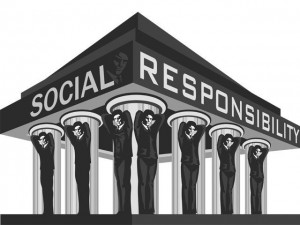How has the popularity of Social Profiles affected the identity of people?
At the center of the Social Web and the shared activities that define it are the online personas of participants, is prior to any sort of discussion boards or cloaked personas and is meant to be an actual identity that is of value in a business context, as it is initially meant to be a prime motive of an individual to be noticed as such that drives social participation in the first place. Though detailed personal information is generally not available except to “trusted friends” or colleagues, the use of a real name or photo in one’s social profile is becoming common.
The profile is therefore considered to be a commencing point of social interaction, since it is an effective interaction that would otherwise occur is purely transactional, among the significant participants and the online application or other unknown party. The existence of a profile or equivalent is, in this sense, what differentiates social platforms and applications from interactive applications. In an interactive application consider an efficient website and is succeeded be an interaction is considerably between the application and the user thus requisite to navigate a help file, download a PDF, or place an item in a shopping cart. In each of these, the primary activity specifically takes place between a user and an application designed to facilitate a specific task.
Identity beyond basic security or commerce validation requirements in this context is of relatively little importance. It’s not just that someone is doing something as with a transaction site: On the social web, that person wants to be noticed or joined with while doing it. Basic tasks aside uploading a photo, for example the majority of the interactions involve profile-based connections or exchanges: crating a photo, extending and confirming a friend request, modifying a wiki document, or sharing a review. Each of these requires a certain degree of assurance that the identity of the other person involved is reasonably well understood, and at least partly so that the person committing the action will be noticed by someone for having done that particular thing.
So it follows that in an online network, without a robust profile the central carrier of visible identity the act of sharing is relatively shallow. Participants in older forums and discussion boards, often lacking a more formal or detailed description of who was who, based identity on little more than a signature and then augmented that by studying writing style or specific interests of various members, and by doing so slowly pieced together an understanding of who the other participants were. People are social, and they will seek to sort out social order in nearly any situation. Ultimately, it is the relationships and the interactions they facilitate that drive successful social business applications.
Click here for government certification in Digital Media





10 Comments. Leave new
Good work!
Great job! The article was well thought of and is really interesting.
Nice..superbly done! True fact
Very interesting…!
Nicely written
well written one!
nice one
Great efforts!
Social profile has a very important impact 😀 on Identity of people 😀
Good work 😀
today social profile is must